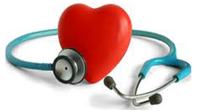Anticoagulants
What are anticoagulants?
Anticoagulants are medicines that keep your blood from clotting as easily as usual.
The most commonly used anticoagulants include:
- abciximab
- aspirin
- clopidogrel
- eptifibatide
- heparin and low molecular weight heparin (LMWH)
- ticlopidine
- tirofiban
- warfarin.
How do they work?
When blood clots, it turns from a liquid into a solid. Blood clotting keeps the body from losing too much blood from wounds. Anticoagulants are often called blood thinners, but what they actually do is increase the time it takes a blood clot to form.
When are they used?
Anticoagulants are used to treat conditions that cause unwanted blood clots. They are also used during surgeries (such as open-heart surgery) to prevent clotting. The right amount and type of anticoagulant can prevent many problems.
Blood clots can cause problems, including:
- stroke, which blocks blood flow to the brain
- blockage of veins or arteries in the legs or in organs such as the lungs and kidneys.
Aspirin, usually in doses of 1 tablet every other day, can prevent or delay heart attacks and small strokes. Clopidogrel and ticlopidine are used for the same purposes.
Warfarin is used to prevent repeated leg clots, heart attacks, and certain kinds of stroke caused by a kind of irregular heartbeat called atrial fibrillation.
Heparin and LMWH are used in hospitals or clinics because they work right away but can have serious side effects if taken for more than a few weeks. These drugs are used during heart valve surgery, after hip replacement surgery, and for serious cases of blood clots and heart attacks. While you are given heparin in the hospital, you may need regular blood tests.
Abciximab, tirofiban, and eptifibatide are usually used for a short time after you have had a heart attack or if you need to have coronary angioplasty.
What should I watch out for?
You will need regular testing while you take warfarin. Keep all appointments for these tests. Do not take aspirin while on warfarin unless told to by your health care provider because it may make your blood too slow to clot when clotting is needed.
Your diet affects the way warfarin works. If you are taking warfarin, eat a healthy balanced diet with about the same amount of vitamin K each day. Vitamin K is found in leafy green vegetables, certain legumes, green tea, and vegetable oils. Do not make big changes in your diet, such as eating a lot more green leafy vegetables than you usually eat.
If you are taking any of these drugs, closely follow your health care provider's instructions about doses and testing. These are powerful drugs and need to be treated with respect.




